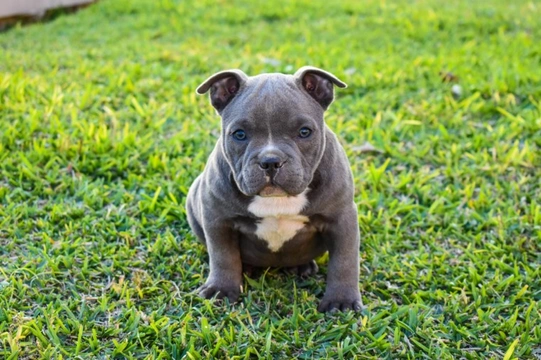
10 Things to Know Before Buying an American Bully in the UK
The American Bully is a relatively new mixed-breed dog type, developed primarily in the 1990s in the USA but gaining popularity in the UK over recent decades. This muscular, compact dog offers an alternative to some traditional bulldog breeds like the English Bulldog, with differences in build, appearance, and often health.
However, prospective owners should be well informed about the breed’s variable ancestry, legal restrictions, typical health concerns, and temperament before deciding to bring one into their home. This guide shares 10 important things you need to know about American Bullies in the UK context in 2025 and beyond.
1. The American Bully is a mixed breed with variable ancestry
American Bullies are crossbred dogs with diverse origins. Common parent breeds include the English Bulldog, American Bulldog, American Staffordshire Bull Terrier, American Pit Bull Terrier, Rottweiler, and Bullmastiff. However, the exact mix varies greatly even within litters, especially between UK and USA lines.
2. They are not recognised by the UK Kennel Club
Because they are a mixed type without a stable breed standard, American Bullies are not recognised as a pedigree breed by the Kennel Club. This means no official breed standard or show eligibility, making it important to seek out reputable breeders and verify lineage where possible.
3. UK American Bullies generally have a less extreme appearance than USA variants
Compared to American Bullies in the USA, UK examples tend to be slightly taller with less extreme muscling and generally have a less flat, less wrinkled face. USA variants are often bulkier, squarer, and have distinct pit bull features, sometimes with cropped ears — a practice illegal in the UK.
4. Legal restrictions are very important to consider
If an American Bully shows strong American Pit Bull Terrier ancestry or a look typical of American lines, caution is essential because of UK breed-specific legislation. The XL American Bully type, often heavier and more imposing, is banned without a certificate of exemption, and pit bull-type ancestry is illegal to own without exemption in the UK.
5. Ownership of XL American Bullies in the UK is tightly regulated
Since February 2024, owning an XL Bully without a Certificate of Exemption is a criminal offence in England and Wales, with similar rules in Scotland and Northern Ireland. This includes requirements for microchipping, neutering, insurance, muzzling in public, and using leads. The breeding and sale of XL Bullies are also prohibited.
6. American Bullies can be expensive to buy
Due to their popularity and breeding costs, American Bullies in the UK often come with average prices around £975 or more, despite being a non-pedigree type. Prospective buyers should be wary of unscrupulous sellers and ensure they purchase from compassionate, responsible breeders or consider adoption options when possible.
7. They have brachycephalic (short-muzzled) faces
American Bullies have a shorter muzzle compared to many dog breeds, which classifies them as brachycephalic. This increases risk of breathing difficulties especially if the muzzle is very flat. It is recommended to choose puppies with longer muzzles and be aware of the specific health needs of brachycephalic dogs.
8. They are strong and may be dominant
The breed’s muscular build means American Bullies are physically powerful. They respond best to training with harnesses rather than collars to ensure safe control. Dominant and territorial tendencies mean consistent training, clear boundaries, and socialisation are essential.
9. Training may require patience
American Bullies are not known for being highly intelligent in comparison to many breeds. They typically learn a limited number of commands and may respond slowly, especially with recall. Consistent, gentle, and patient training is key to managing behaviour and ensuring a well-mannered dog.
10. Experienced ownership is recommended
Because of their strength, variable genetics, and behavioural traits, American Bullies require owners familiar with bull breeds and dog training basics. They are not ideal for inexperienced dog owners and benefit greatly from early socialisation and lifelong management to thrive as gentle companions.
In summary, owning an American Bully in the UK involves understanding the breed's mixed origins, respecting current legal restrictions (especially relating to XL types), recognising their health needs, and committing to responsible ownership and training.
For more on finding reputable breeders or adoption options, and to view American Bully puppies for sale, visit Pets4Homes and always prioritise the well-being and safety of the dog and community.



